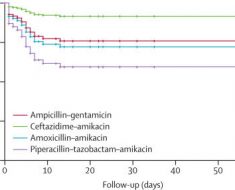Being fat in your teens, twenties and thirties is linked to 18 types of cancer, study warns
- Overweight or obese people are more at risk of cancer such as breast and bowel
- Excess weight is linked for the first time to bladder cancer in never-smokers
- READ MORE: Could a cancer drug be the answer to a chronically stuffed nose?
Being overweight as a young adult can increase the risk of developing 18 cancers – more than have been previously linked with the disease, researchers found.
Previous studies have shown that people who are overweight or obese have a heightened risk of a number of different cancers, including breast, bowel, kidney and pancreatic.
Now excess weight has also been linked to leukemia, non-Hodgkin lymphoma, and among never-smokers, bladder and head and neck cancers in a large new study.
The authors said these cancers have not previously been ‘considered as obesity-related cancers’, and that the impact of obesity on cancer is ‘likely underestimated.’

The Spanish researchers found that those who were overweight or obese in early adulthood – aged 40 and under – appeared to have an increased risk of cancer
The new study, published in Nature Communications, saw researchers examine data on more than 2.6 million Spanish adults aged 40 and under who were cancer-free in 2009.
Researchers examined the body mass index (BMI) scores throughout the lifetime of people involved with the study, saying that previous research investigating the link between weight and cancer has used single BMI scores.
The people in the study were tracked for nine years to see whether they developed cancer.
Some 225,396 were diagnosed with cancer during the period studied.
The Spanish researchers found that those who were overweight or obese in early adulthood – aged 40 and under – appeared to have an increased risk of cancer.
Those who were overweight or obese for a longer period also appeared to have a higher risk.
Children exposed to high levels of ‘forever chemicals’ in womb more likely to be obese

Children exposed to high levels of forever chemicals in the womb are more likely to be overweight or obese, a government-funded study has found.
Overall, some 18 cancers were linked to excess weight, including leukemia, non-Hodgkin lymphoma, and among never-smokers, head and neck, and bladder cancers, until now have not been considered as obesity-related cancers in the literature.
Cancers found to be linked to obesity were: leukemia, non-Hodgkin lymphoma, bladder, head and neck, colorectum, postmenopausal breast, endometrium, pancreas, multiple myeloma, corpus uteri, kidney, gallbladder, biliary tract, liver, bowel, thyroid, brain and central nervous system.
The authors wrote: ‘This study shows that longer duration, greater degree, and younger age of onset of overweight and obesity during early adulthood are positively associated with risk of 18 cancers, including leukemia, non-Hodgkin lymphoma, and among never-smokers, head and neck, and bladder cancers which are not yet considered as obesity-related cancers in the literature.
‘Our findings seem to indicate that longer exposures to overweight and obesity (with or without accounting for the degree of overweight and obesity), as well as developing overweight and obesity at younger ages in early adulthood might increase cancer risk.
‘Our findings support public health strategies for cancer prevention focusing on preventing and reducing early overweight and obesity.’
Dr Heinz Freisling, from the International Agency for Research on Cancer and one of the study’s co-leaders, said: ‘The results of our study support a re-evaluation of the cancer burden associated with overweight and obesity, which currently is likely underestimated.’
Commenting on the study, Dr Panagiota Mitrou, director of research, policy and innovation at World Cancer Research Fund, said: ‘This large study has future public health implications since additional cancers, such as leukemia and non-Hodgkin lymphoma, have been shown to be linked with overweight and obesity.
‘Our own evidence shows that maintaining a healthy weight throughout life is one of the most important things people can do to reduce their cancer risk, and early prevention in adulthood is key.’
Source: Read Full Article





